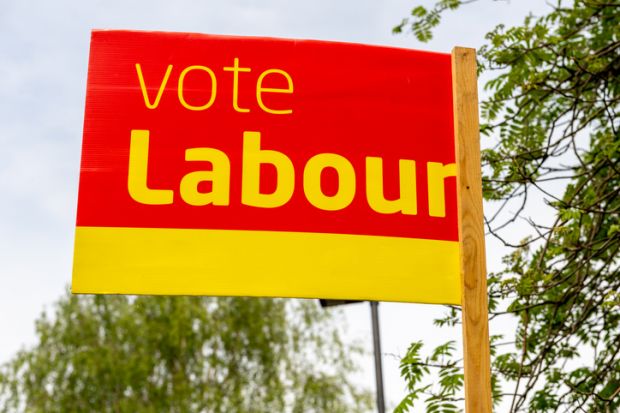Labour’s signals that it is “accepting” tuition fees in England have prompted calls for the party to commit to reversing the long-running decline in university funding under the frozen fee cap.
Some think that the current system of fees and loans will now endure at least for the first term of any Labour government, which could last for five years after a likely 2024 election.
Sir Keir Starmer, the Labour leader, announced in May that the party would drop its Jeremy Corbyn-era pledge to abolish fees and fund universities through public spending.
That still leaves questions as to the opposition party’s future policy on higher education funding: whether it wants to keep the existing system of fees and loans with tweaks, or leave the door open to more fundamental change by committing to hold a review if it wins power at the next election, which must be held by January 2025.
At the time of Sir Keir’s announcement, The Times reported that he would make a speech at the end of May setting out the party’s position in more detail – but that was yet to materialise at the time of writing.
Bridget Phillipson, the shadow education secretary, last month wrote a Times article on student finance that referred only to changes to the existing system that could, she said, “reduce the monthly repayments for every single new graduate without adding a penny to government borrowing or general taxation – Labour will not be increasing government spending on this”.
That might set alarm bells ringing for Universities UK, which has called for a “national conversation” seeking “bold and serious” solutions to the underfunding of teaching and research across the UK nations, highlighting that the £9,250 fee cap – raised by only £250, in 2017, since fees were trebled to £9,000 in 2012 – is now worth £6,600 in 2012 prices.
Vivienne Stern, the UUK chief executive, told Times Higher Education that it was good that shadow cabinet members were “starting to reveal their thinking”.
“We’re raising two things with the Labour front bench: they need to do something about the level of maintenance support for students, which is at the lowest level for seven years, and they need to halt and reverse the decline in funding for teaching, which has been frozen for almost 10 years – that simply cannot go on if we want to maintain an outstanding university system,” she said.
Ms Phillipson’s comments were cited at the recent Higher Education Policy Institute (Hepi) conference by Matt Western, the shadow higher education minister, suggesting he “accepts the logic for fees [and] loans”, amounting to “pretty radical stuff” in comparison with previous Labour policy, argued Nick Hillman, the Hepi director and former adviser to Lord Willetts in his time as a Conservative universities minister.
Many in the sector have previously suggested that Labour could pledge to hold a review of higher education funding after the election as a way of paving the way to more fundamental change, such as a graduate tax – long the favoured alternative for many in the party – but shadow ministers have as yet offered no public signals.
“A review must remain a possibility until it is explicitly shunned but, even if an incoming Labour government were to have a review of student finance, it would take a year or two to hold the review and then to respond and another couple of years to implement major changes…so I doubt there would be much really significant change from what we have now in the first term of a Labour government,” Mr Hillman said.
Register to continue
Why register?
- Registration is free and only takes a moment
- Once registered, you can read 3 articles a month
- Sign up for our newsletter
Subscribe
Or subscribe for unlimited access to:
- Unlimited access to news, views, insights & reviews
- Digital editions
- Digital access to THE’s university and college rankings analysis
Already registered or a current subscriber? Login








